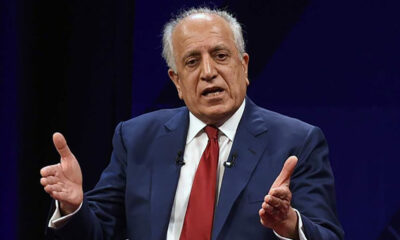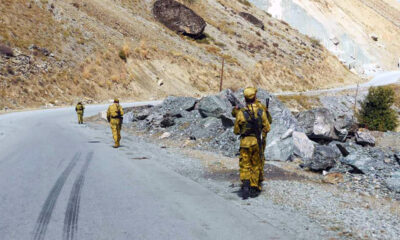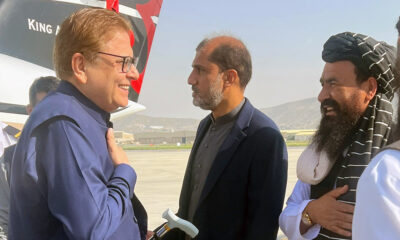Regional
Pakistan says Iran violated airspace, killing two children
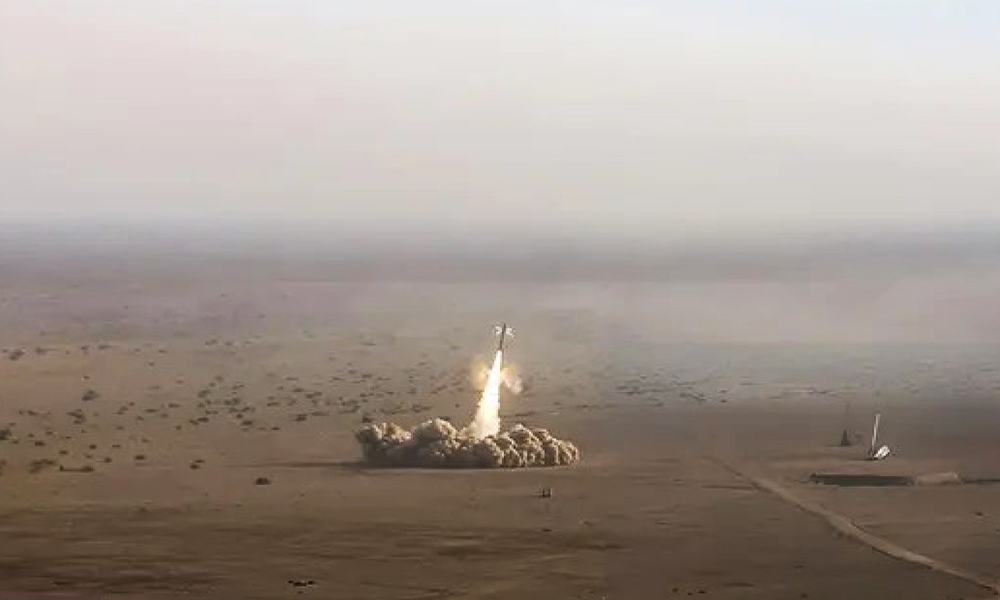
Pakistan said neighbouring Iran has violated its airspace resulting in the death of two children, hours after Iranian state media said missiles targeted two bases of militant group Jaish al Adl on Tuesday, Reuters reported.
Islamabad warned that the incident could have “serious consequences” and was “completely unacceptable” in a statement released by Pakistan’s foreign office spokesperson in the early hours of Wednesday.
Iran’s foreign ministry was not immediately available for comment.
On Monday, Iran’s elite Revolutionary Guards attacked targets in Iraq and Syria with missiles, read the report.
Jaish al Adl has previously mounted attacks on Iranian security forces in the border area with Pakistan.
“These bases were hit and destroyed by missiles and drones,” Iranian state media reported earlier, without elaborating.
Iran’s Nournews, affiliated with the country’s top security body, said the attacked bases were in Pakistan’s Balochistan province, Reuters reported.
Pakistan’s statement did not mention the location of the incident, nor the nature of the airspace violation, but said it had lodged a protest with Tehran and the head of the Iranian mission in Islamabad had been called to the Ministry of Foreign Affairs.
“The responsibility for the consequences will lie squarely with Iran,” Pakistan’s statement said, adding that the incident had occurred despite the existence of several channels of communication with Iran.
The Pakistani military’s public relations wing did not immediately respond to a request for comment.
Regional
Khamenei downplays US talks prospects as some Iranians’ hopes stir, currency gains
Iran’s clerical rulers have publicly said that demands such as dismantling the country’s peaceful nuclear programme or its conventional missile capabilities were off the table.
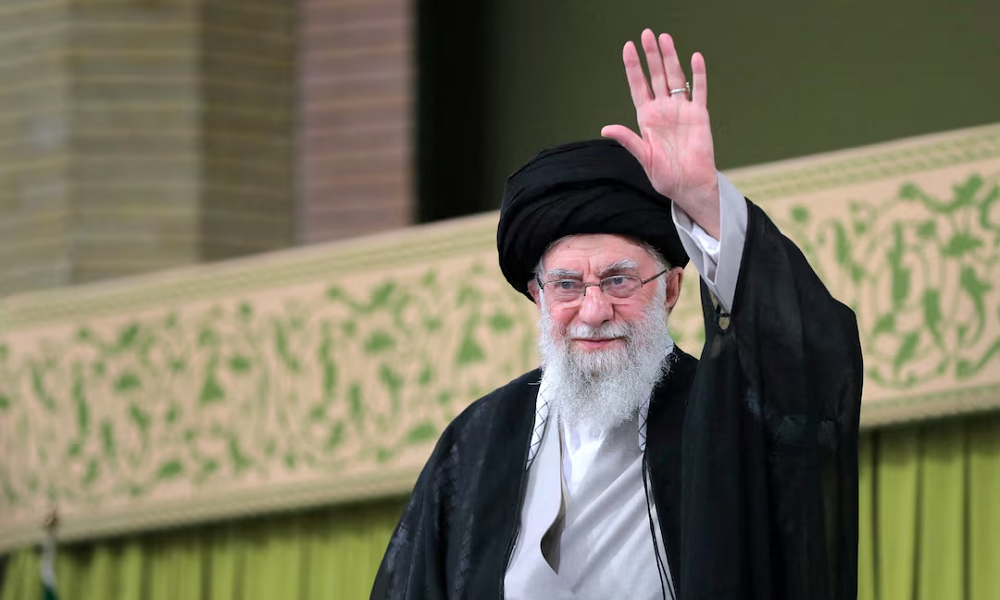
Iran’s Supreme Leader Ayatollah Ali Khamenei sought on Tuesday to play down expectations of a breakthrough in nuclear talks with the U.S., following stirrings of hope among some Iranians weary of economic hardships that have at times sparked public unrest.
Failure to reach a deal with President Donald Trump to end Iran’s decades-long dispute with the West could profoundly hurt the Islamic Republic, Iranian politicians and insiders have said, even if Washington is subsequently portrayed by Tehran as the guilty party.
A second round of nuclear talks will be held in Muscat on April 19.
Iran’s battered rial currency has gained some 20% against the dollar in the past few days, with many Iranians hoping an deal to end Iran’s economic isolation may be within reach.
“We are neither overly optimistic nor pessimistic regarding them. After all, it is a process which was decided and its first steps have been well implemented,” Khamenei said in a meeting with officials, according to state media.
White House special envoy Steve Witkoff, who leads the talks with Iran, said that Trump has asked him to “create a tough, fair deal that will endure.”
“Any final arrangement must set a framework for peace, stability, and prosperity in the Middle East – meaning that Iran must stop and eliminate its nuclear enrichment and weaponization program,” Witkoff posted on X on Tuesday.
Iran’s clerical rulers have publicly said that demands such as dismantling the country’s peaceful nuclear programme or its conventional missile capabilities were off the table.
Tehran has approached the talks warily, doubting the likelihood of an agreement and suspicious of Trump, who abandoned Tehran’s 2015 nuclear pact with six world powers during his first term in 2018. He has repeatedly threatened to use military force if there is no deal.
“From here on, it (the talks) must be followed through carefully, with red lines clearly defined for both the other side and for us. The negotiations may lead to results, or they may not,” said Khamenei.
“Avoid linking the country’s fate to these talks.”
Some Iranian officials have suggested that Trump’s business background could make him more receptive to a deal if it includes economic incentives, such as a potential purchase of U.S.-made planes or unlocking of Iran’s economy for U.S. investors.
But a number of Iranian newspapers have warned about inflating public expectations with “baseless hype”.
“Why do you make promises about the talks that cannot be fulfilled? … Don’t undermine public trust with promises made only for fleeting media attention,” wrote the Khorasan newspaper on Monday, in response to comments by an official that raised hopes of economic breakthroughs from the talks.
Since relations with Washington collapsed after Iran’s 1979 Islamic revolution that ousted the U.S.-backed Shah, enmity toward the U.S. has been a rallying point for Iran’s rulers.
But inflation, unemployment and lack of investment as a result of crippling sanctions, reimposed after Trump ditched the 2015 nuclear pact, persuaded Khamenei to support talks with the Trump administration.
Tehran’s concerns were exacerbated by Trump’s speedy revival of his first term’s “maximum pressure” campaign aimed at driving Iran’s oil exports towards zero with more sanctions.
Since 2019, Iran has far surpassed its uranium enrichment limits, according to the International Atomic Energy Agency (IAEA). Tehran is producing stocks of fissile purity well above what Western powers say is justifiable for a civilian energy programme and close to weapons grade.
Tehran has long denied seeking nuclear weapons.
“What Tehran wants in return (from the U.S.) is for sanctions to be removed on several sectors. Once those sanctions are removed, the U.S. cannot bring them back under other pretexts.” the state-run Tehran Times newspaper reported on Monday.
Regional
Iranian foreign minister to visit Moscow ahead of second Iran-US meeting
Moscow, a party to Iran’s 2015 nuclear pact, has supported Tehran’s right to have a civilian nuclear programme.
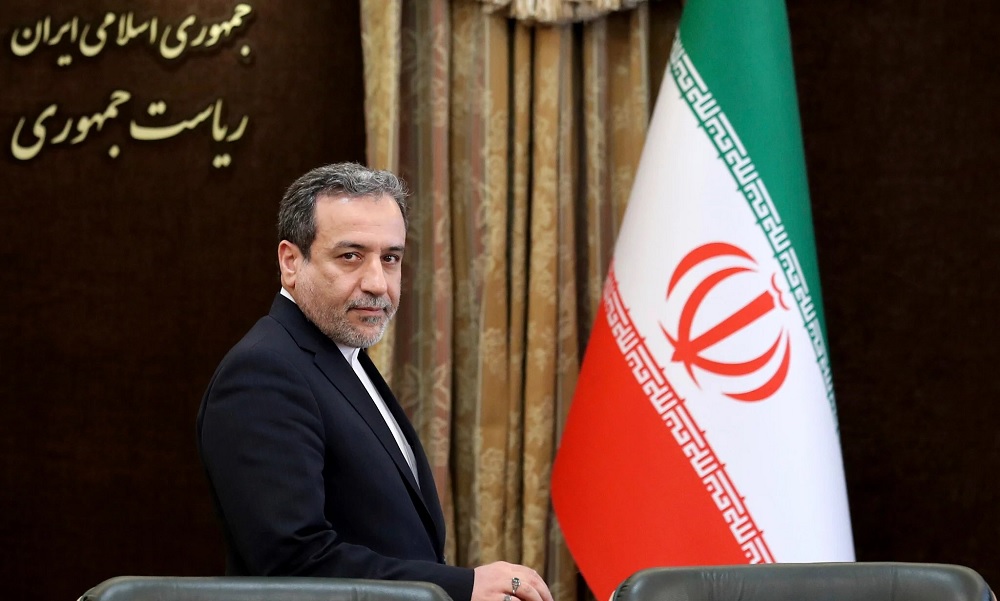
Iranian Foreign Minister Abbas Araqchi will visit Russia this week ahead of a planned second round of talks between Tehran and Washington aimed at resolving Iran’s decades-long nuclear stand-off with the West, Reuters reported.
Araqchi and U.S. President Donald Trump’s Middle East envoy, Steve Witkoff, held talks in Oman on Saturday, during which Omani envoy Badr al-Busaidi shuttled between the two delegations sitting in different rooms at his palace in Muscat.
Both sides described the talks in Oman as positive, although a senior Iranian official told Reuters the meeting “was only aimed at setting the terms of possible future negotiations.”
The second round of the nuclear talks between Tehran and Washington will be held in Oman’s Muscat on Saturday, Iran’s state news agency IRNA on Monday quoted Foreign Ministry spokesman Esmaeil Baghaei as saying.
Earlier on Monday, Italian news agency ANSA reported that Italy had agreed to host the talks’ second round, and Iraq’s state news agency said Araqchi told his Iraqi counterpart that talks would be held “soon” in the Italian capital under Omani mediation, read the report.
Tehran has approached the talks warily, doubting the likelihood of an agreement and suspicious of Trump, who has threatened to bomb Iran if there is no deal.
Washington aims to halt Tehran’s sensitive uranium enrichment work – regarded by the United States, Israel and European powers as a path to nuclear weapons. Iran says its nuclear programme is solely for civilian energy production.
Iranian Foreign Ministry spokesman, Baghaei, said Araqchi will “discuss the latest developments related to the Muscat talks” with Russian officials.
Moscow, a party to Iran’s 2015 nuclear pact, has supported Tehran’s right to have a civilian nuclear programme.
Iran’s Supreme Leader Ayatollah Ali Khamenei, who has the final say on vital state matters, distrusts the United States, and Trump in particular.
But Khamenei has been forced to engage with Washington in search of a nuclear deal due to fears that public anger at home over economic hardship could erupt into mass protests and endanger the existence of the clerical establishment, four Iranian officials told Reuters in March.
Tehran’s concerns were exacerbated by Trump’s speedy revival of his “maximum pressure” campaign when he returned to the White House in January.
During his first term, Trump ditched Tehran’s 2015 nuclear pact with six world powers in 2018 and reimposed crippling sanctions on the Islamic Republic.
Since 2019, Iran has far surpassed the 2015 deal’s limits on uranium enrichment, producing stocks at a high level of fissile purity, well above what Western powers say is justifiable for a civilian energy programme and close to that required for nuclear warheads, Reuters reported.
The International Atomic Energy Agency has raised the alarm regarding Iran’s growing stock of 60% enriched uranium, and reported no real progress on resolving long-running issues, including the unexplained presence of uranium traces at undeclared sites.
IAEA head Rafael Grossi will visit Tehran on Wednesday, Iranian media reported, in an attempt to narrow gaps between Tehran and the agency over unresolved issues.
“Continued engagement and cooperation with the agency is essential at a time when diplomatic solutions are urgently needed,” Grossi said on X on Monday.
Regional
Saudi Arabia plans to pay off Syria’s World Bank debts – Reuters
Syria has around $15 million in arrears to the World Bank which must be paid off before the international financial institution can approve grants and provide other forms of assistance.
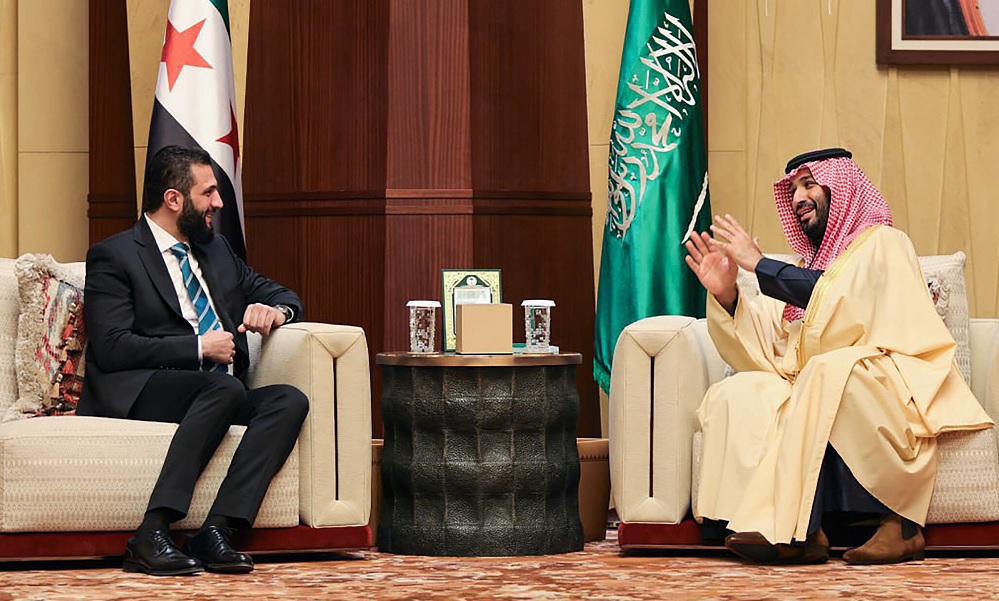
Saudi Arabia plans to pay off Syria’s debts to the World Bank, paving the way for the approval of millions of dollars in grants for reconstruction and to support the country’s paralysed public sector, Reuters reported on Monday citing three people familiar with the matter
The plans, which have not been previously reported, would be the first known instance of Saudi Arabia providing financing for Syria since Islamist-led rebels toppled former leader Bashar al-Assad last year.
It may also be a sign that crucial Gulf Arab support for Syria is beginning to materialize after previous plans, including an initiative by Doha to fund salaries, were held up by uncertainty over U.S. sanctions.
Last month, Qatar announced a plan to provide Syria with gas via Jordan to improve the nation’s meagre electricity supply, a move that sources told Reuters had Washington’s nod of approval.
A spokesperson for the Saudi Ministry of Finance told Reuters, “We do not comment on speculation, but make announcements, if and when they become official.”
The Saudi government’s media office, a World Bank spokesperson and a Syrian government official did not immediately respond to requests for comment.
Syria has around $15 million in arrears to the World Bank which must be paid off before the international financial institution can approve grants and provide other forms of assistance.
But Damascus is short of foreign currency and a previous plan to pay off the debts using assets frozen abroad did not materialize, according to two people familiar with the matter.
World Bank officials have discussed providing financing to help reconstruct the country’s power grid, heavily damaged by years of war, and also to support public sector pay, two of the sources said.
Reuters reported on Saturday that Syria would send a high-level delegation to Washington for the yearly spring meetings of the World Bank and IMF later this month, marking the first visit by Syrian officials to the U.S. since Assad’s ouster.
It is unclear whether the Syrian delegation will meet with any U.S. officials.
Tough U.S. sanctions imposed during Assad’s rule remain in place.
In January, the U.S. issued a six-month exemption for some sanctions to encourage humanitarian aid, but this has had limited effect.
Last month the U.S. gave Syria a list of conditions to fulfil in exchange for partial sanctions relief but the administration of U.S. President Donald Trump has otherwise engaged little with the country’s new rulers.
That is in part due to differing views in Washington on how to approach Syria.
Some White House officials have been keen to take a more hard line stance, pointing to the new Syrian leadership’s former ties to Al-Qaeda as reason to keep engagement to a minimum, according to diplomats and U.S. sources.
-
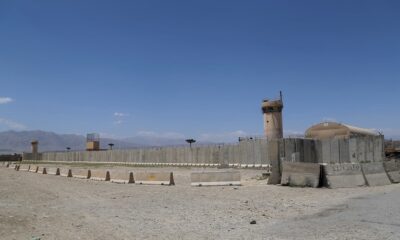
 Latest News4 days ago
Latest News4 days agoNo American military presence in Bagram: US defense official
-
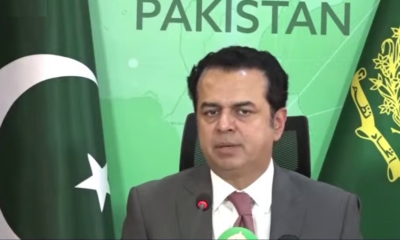
 Latest News5 days ago
Latest News5 days agoNo new deadline will be given for Afghan refugees: Pakistani official
-
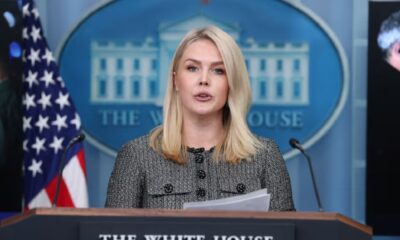
 World4 days ago
World4 days agoWhite House says ‘all hell to pay’ should Iran develop nuclear weapon
-
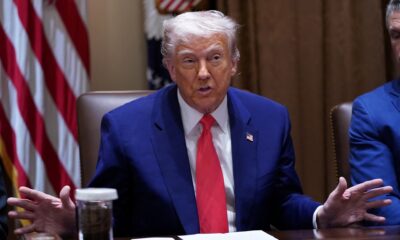
 Latest News4 days ago
Latest News4 days agoTrump ends protected status for thousands of Afghans, Cameroonians
-
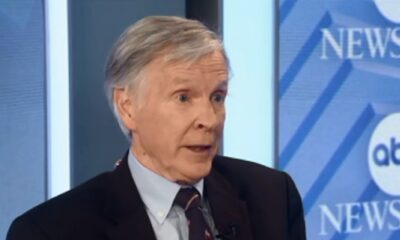
 Latest News4 days ago
Latest News4 days ago‘No one wants to see a nuclear-armed Iran,’ says former US ambassador to Afghanistan
-
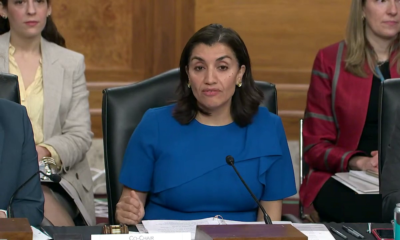
 Latest News4 days ago
Latest News4 days agoUS Senate convenes commission to review early years of Afghanistan war
-
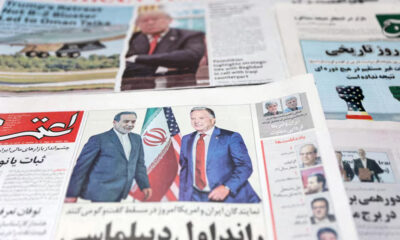
 Regional3 days ago
Regional3 days agoIran, US hold ‘positive’ talks in Oman, agree to resume next week
-
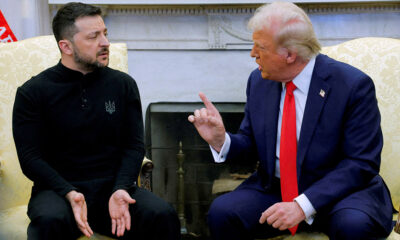
 World3 days ago
World3 days agoTrump says Ukraine talks may be going OK, but there is a time ‘to put up or shut up’


